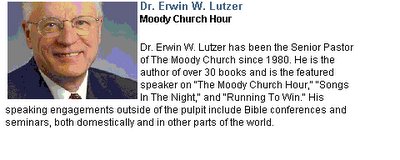
I found the below recently, and thought it might be helpful to others.
Marriage Annulment Grounds:
There are very well defined canonical grounds for Marriage Annulment . Once these have been established marriage Annulment can proceed. It is important to understand the grounds for Marriage Annulment before making application, and if in doubt you should consult your local priest.
Insufficient use of reason (Canon 1095, 10)
You or your spouse did not know what was happening during the marriage ceremony because of insanity, mental illness, or a lack of consciousness.
Grave lack of discretionary judgment concerning essential matrimonial rights and duties (Canon 1095, 20)
You or your spouse was affected by some serious circumstances or factors that made you unable to judge or evaluate either the decision to marry or the ability to create a true marital relationship.
Psychic-natured incapacity to assume marital obligations (Canon 1095, 30)
You or your spouse, at the time of consent, was unable to fulfill the obligations of marriage because of a serious psychological disorder or other condition.
Ignorance about the nature of marriage (Canon 1096, sec. 1)
You or your spouse did not know that marriage is a permanent relationship between a man and a woman ordered toward the procreation of offspring by means of some sexual cooperation.
Error of person (Canon 1097, sec. 1) Reasons for Marriage Annulment
You or your spouse intended to marry a specific individual who was not the individual with whom marriage was celebrated. (For example, mail order brides; otherwise, this rarely occurs in the United States.)
Error about a quality of a person (Canon 1097, sec. 2)
You or your spouse intended to marry someone who either possessed or did not possess a certain quality, e.g., social status, marital status, education, religious conviction, freedom from disease, or arrest record. That quality must have been directly and principally intended.
Fraud (Canon 1098) Reasons for Marriage Annulment
You or your spouse was intentionally deceived about the presence or absence of a quality in the other. The reason for this deception was to obtain consent to marriage.
Total willful exclusion of marriage (Canon 1101, sec. 2)
You or your spouse did not intend to contract marriage as the law of the Catholic Church understands marriage. Rather, the ceremony was observed solely as a means of obtaining something other than marriage itself, e.g., to obtain legal status in the country or to legitimize a child.
Willful exclusion of children (Canon 1101, sec. 2)
You or your spouse married intending, either explicitly or implicitly, to deny the other's right to sexual acts open to procreation.
Willful exclusion of marital fidelity (Canon 1101, 12)
You or your spouse married intending, either explicitly or implicitly, not to remain faithful.
Willful exclusion of marital permanence (Canon 1101, sec. 2)
You or your spouse married intending, either explicitly or implicitly, not to create a permanent relationship, retaining an option to divorce.
Future condition (Canon 1102, sec. 2)
You or your spouse attached a future condition to your decision to marry, e.g., you will complete your education, your income will be at a certain level, you will remain in this area.
Past condition (Canon 1102, sec. 2)R
You or your spouse attached a past condition so your decision to marry and that condition did not exist; e.g., I will marry you provided that you have never been married before, I will marry you provided that you have graduated from college.
Present condition (Canon 1102, sec. 2)
You or your spouse attached a present condition to your decision to marry and that condition did not exist, e.g., I will marry you provided you don't have any debt.
Force (Canon 1103)
You or your spouse married because of an external physical or moral force that you could not resist.
Fear (1103)
You or your spouse chose to marry because of fear that was grave and inescapable and was caused by an outside source.
Error regarding marital unity that determined the will (1099)
You or your spouse married believing that marriage was not necessarily an exclusive relationship.
Error regarding marital indissolubility that determined the will (Canon 1099)
You or your spouse married believing that civil law had the power to dissolve marriage and that remarriage was acceptable after civil divorce.
Error regarding marital sacramental dignity that determined the will (Canon 1099)
You and your spouse married believing that marriage is not a religious or sacred relationship but merely a civil contract or arrangement.
Lack of new consent during convalidation (Canons 1157,1160)
After your civil marriage, you and your spouse participated in a Catholic ceremony and you or your spouse believed that (1) you were already married, (2) the Catholic ceremony was merely a blessing, and (3) the consent given during. the Catholic ceremony had no real effect.
--------------------------------------------------------------------------------
Marriage Annulment in the Catholic Church
Marriage Annulment:
WHO CAN APPLY FOR AN ANNULMENT?
Every person, whether a Catholic or not, has the right to ask the Catholic Church to investigate the status of his or her marriage. Should the Church decide that such a marriage were null, this would be quite distinct from a civil divorce; it would be a declaration by the Catholic Church that a particular union was not a valid marriage.
Marriage Annulment:
HOW CAN THE CHURCH DECLARE MARRIAGES NULL?
There are many marital situations in which the tribunal can offer help. It may be that a couple entered a marriage with an impediment, such as a previous bond of marriage; or that their consent was invalid, because they lacked the necessary capacity, knowledge or will to consent to marriage; or that there was something wrong with the form of marriage used.
Marriage Annulment:
IS THERE ANY HOPE FOR ME ONCE I AM DIVORCED?
It may be that a Catholic person is divorced or that a Catholic wishes to marry someone who is divorced. The tribunal is always available to investigate a claim of nullity in an instance such as this. In doing so, the judges of the tribunal do not apportion blame to one party or the other; they are only concerned with making a just judgement about whether or not the marriage was null, this does not have any effect on the legitimacy of any children born of the union.
Marriage Annulment:
HOW COULD I ENTER A NEW MARRIAGE?
Once the tribunal has reached a decision of nullity, and if this is agreed by our appeal tribunal, the marriage is declared null and both parties to it are then free to marry. This is not Catholic divorce; it is marriage annulment, and it is one of the Catholic Church’s pastoral responses to those who find themselves in difficult marital situations.
Marriage Annulment:
WHAT IF I WAS MARRIED OUTSIDE THE CATHOLIC CHURCH?
Catholics are bound to marry according to the Catholic form of marriage, unless they are dispensed. So if a Catholic has married in a non-Catholic Church, or in a register office, without this dispensation being given, the marriage is invalid. Both parties to such a union can be declared free to marry, enabling each of them to enter a new marriage.
Marriage Annulment:
WHAT SHOULD I DO TO START AN ANNULMENT PROCESS?
First of all, speak to one of the priests or deacon in your parish, or perhaps to another priest or deacon known to you. He should be able to give you a preliminary enquiry form, in which you are asked to set out the principal facts concerning your marriage. It is the usual practice of the tribunal to require a couple to have obtained a divorce absolute decree before the annulment process begins.
Additional Resources Dealing with Domestic Violence within the Catholic Church

















